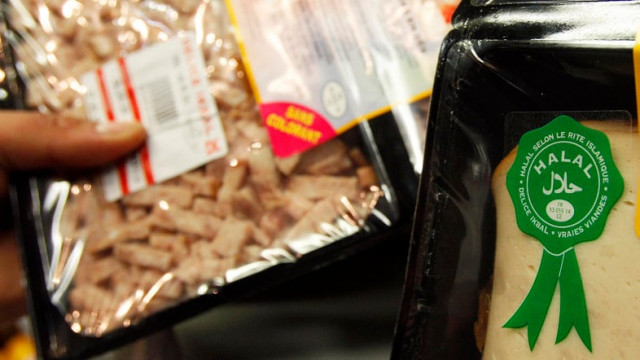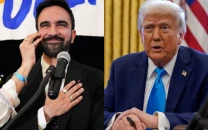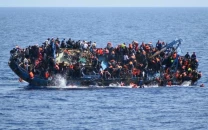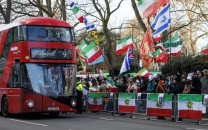How America's halal food industry started raking in billions
Sales of halal food have been surging in the United States

A visitor holds a package of Halal food at the Halal show which presents food products for Muslim clients which are prepared following Islamic dietary laws. PHOTO: REUTERS
“Food is a great medium for cultural sharing,” Shahed Amanullah said. Amanullah launched a website to help Americans find halal food back in 1998 when you could only find about 200 places that served halal. Today, he said. there were around 7,600.
‘Halal tourism’ emerges as businesses serve Muslim travelers
In grocery and convenience stores and similar outlets, research firm Nielsen estimates halal food sales reached $1.9 billion in the 12 months through August, a 15% increase from 2012. According to the Islamic Food and Nutrition Council of America, which certifies halal food and promotes education on the topic, overall, from restaurants to supermarkets, sales are projected at $20 billion this year, up one-third since 2010.
Whole Foods Market Inc., which has been among the pioneers, ranks halal among its fastest growing categories, with double-digit sales growth in each of the last five years. It’s been running Ramazan promotions since 2011. Although it received criticism for the campaign, the company still went ahead with it. “People look to Whole Foods to be that trendsetter,” he said, “We’re happy to be on that cutting edge and take some risks.”
Spending on Halal food may rise 10.8% per year
Pew Research Center projects the Muslim population in the US to grow to 8.1 million by 2050 from last year’s 3.3 million. This increase will mean that Muslims will surpass Jews as the largest non-Christian religious group in the US.
American Halal Co Adnan Durrani estimates that as many as 80% of consumers who buy his Saffron Road brand are not trying to follow Islamic law, but instead are just food-lovers who want better frozen meals. Saffron Road is a star performer at Whole Foods, and is also sold at branches of Kroger Co., Safeway Inc. and Giant Food Stores, across over 12,000 locations.
However, big names in packaged food are still not committed. Mondelez International Inc., the global snack giant, is a player in predominantly Muslim countries like Indonesia and Saudi Arabia, where halal is the standard. But in the US, it only sells a handful of halal products. Nestle, the world’s largest food company, has 151 halal factories, from Malaysia to Pakistan, and distributes hundreds of certified products across the world. However, in America, Nestle mainly sells the food through its healthcare unit, which supplies hospitals.
Muslims spend a trillion dollars buying Halal food. This startup wants to cater to them
As far as retailers are concerned, Wal-Mart features halal products at about 400 of its 4,600 stores, and Kroger carries them only where there’s local demand. It is possible that halal could be “held back by the stigma” that some Americans attach to Islam, Krishnendu Ray, associate professor of food studies at NYU Steinhardt said. “Or, it could eventually be like kosher, which is identified as fresher, more virtuous food.”
This article originally appeared on Bloomberg.



















COMMENTS
Comments are moderated and generally will be posted if they are on-topic and not abusive.
For more information, please see our Comments FAQ